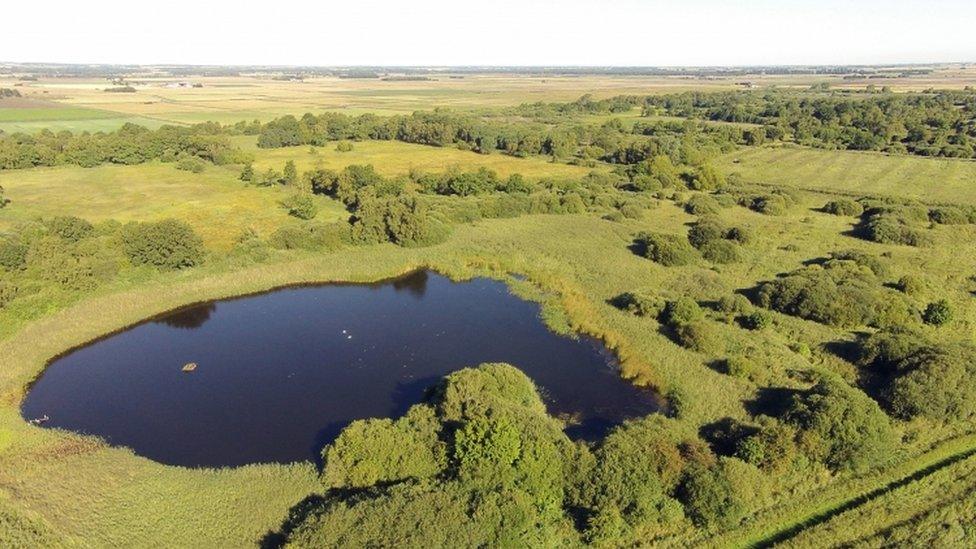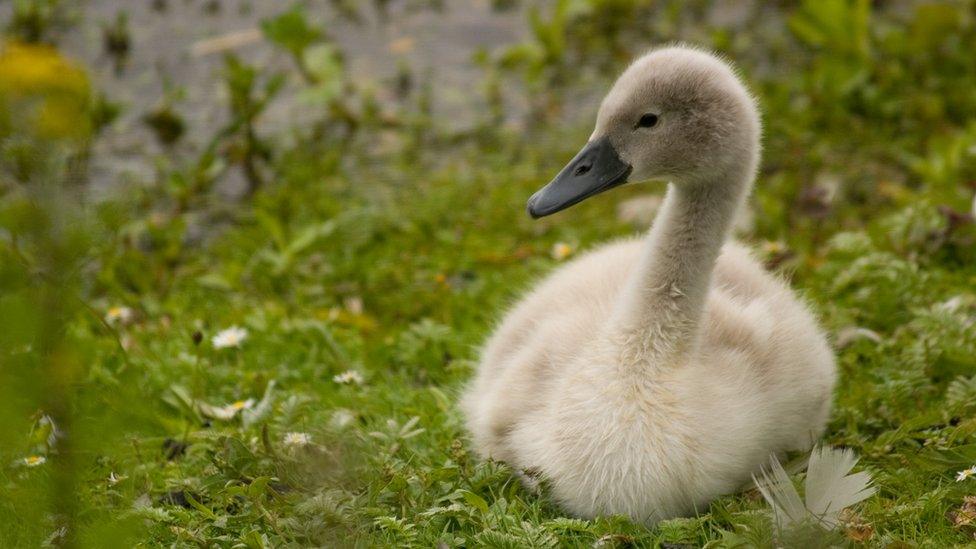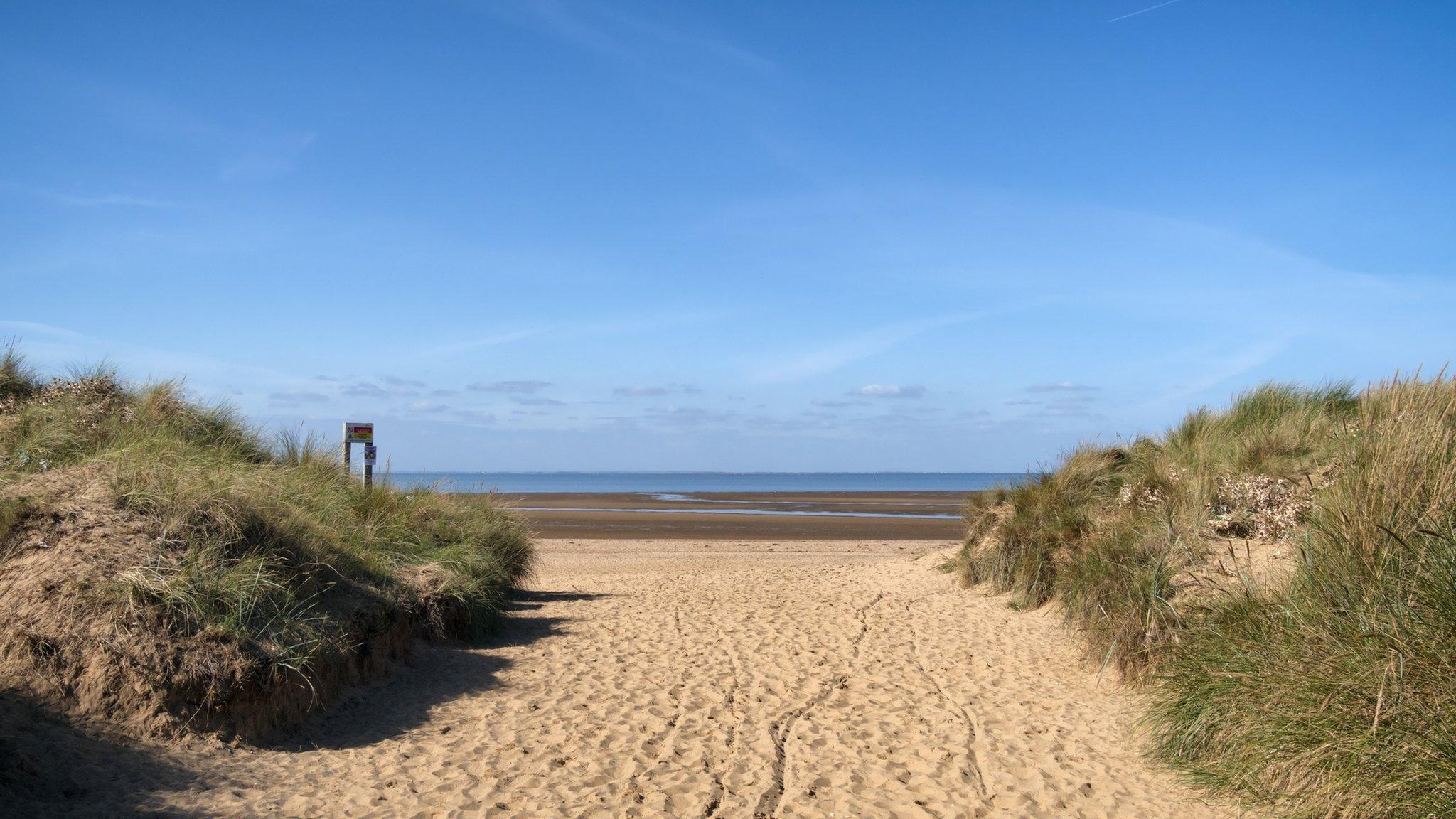£50 million of funding to help tackle impacts of climate change in UK
- Published
- comments

Plymouth Sound National Marine Park is one of five projects which have received money from the National Lottery Heritage fund
A scheme to develop the UK's first ever national marine park has received a share of a £50 million fund from the National Lottery.
Plymouth Sound is currently home to the largest naval base in Europe, as well as more than 1,000 species of fish and other marine creatures.
The proposed National Marine Park has been given more than £9.5 million from the National Lottery Heritage fund to help tackle the impacts of climate change on the area and its wildlife.
Part of the money given to the park will be used to fund a new welcome centre at the National Marine Aquarium, a scheme to explore how seagrass can be used to help the environment and it'll help create more than 450 jobs.
A marine park is an area of sea or ocean which is protected to help preserve a particular habitat and look after marine life.
Grants have been awarded to three environmental projects and two heritage schemes in total as part of the National Lottery Heritage Fund's Heritage Horizon Awards which aim to support a number of UK based ambitious and transformational projects.
"These hugely ambitious, exciting projects are not only protecting and preserving vital local heritage, but are also creating jobs, supporting local communities and helping us to build back better from the pandemic," said Culture minister Caroline Dinenage.
Which other projects have been given money?

The Cairngorms 2030 project received nearly £12.5 million for a scheme aimed at tackling the climate and nature crises in the UK's largest national park
The Cairngorms 2030 project received nearly £12.5 million for a scheme which brings together 45 organisations with the aim of tackling the climate and nature crises in the UK's largest national park in the Scottish Highlands.
The scheme, which will be community-led, will boost nature through measures including woodland expansion, peat land restoration, nature-friendly farming and sustainable transport.

More than £8 million has been awarded for a project to store carbon in the peat soils of East Anglia's fens
A project to store carbon in the peat soils of East Anglia's fens which is being run by The Wildlife Trust for Bedfordshire, Cambridgeshire and Northamptonshire, has received more than £8 million.
The scheme will focus on what's known as 'wet farming' to keep carbon locked in the peat soils and improve water quality.
- Published5 May 2021
- Published10 July 2021

- Published25 May 2021

- Published8 April 2021

